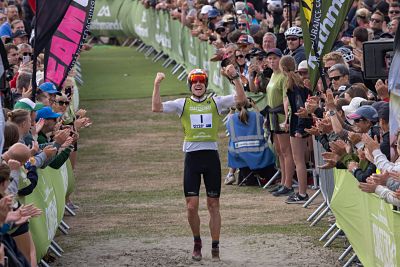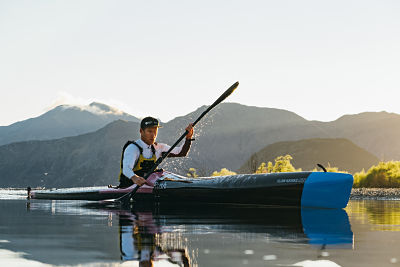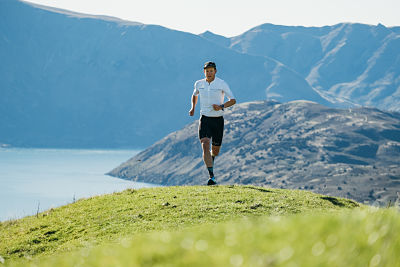Around this time every year, I start to reflect on the New Zealand race season and my brain does its default thing of weighing up what worked well and where the opportunities to improve lie.
For context, I usually see the ‘NZ multisport race season’ as existing between the months of October and March. So for me this meant my season effectively began with the Motu Challenge in Opotiki and finished (rather unexpectedly after I was called up as a late injury replacement) with the GODZone Adventure Race in March.
Without doubt, my biggest focus for this period was on the 243km Coast to Coast Longest Day Race in February. Doing this followed by racing as part of a team at the GODZone (the longest expedition-length race in the world) three weeks later has definitely left me with a satisfying sense of exhaustion and a healthy respect for the need to rest and recover.

On the topic of recovery, I think this is an area where I have made massive improvements over the past year.
Underlying these improvements would be a heightened appreciation for the need to meet fuelling demands for endurance training (it's mind-blowing how many calories we need in order to function at a healthy level when training 15-25 hours per week).
But additional to the more obvious demands around macronutrient intake would be my extended understanding and application towards meeting sodium requirements - I've come to understand that it's the key electrolyte lost in our sweat that plays a pivotal role in maintaining fluid balance, nerve transmission and muscle and brain function.
A light-bulb moment
Earlier in the season I was consuming a lot of plain water. It started to dawn on me that my body felt tighter and heavier than usual. I was also cramping in bed and during the odd training session.
The light-bulb moment came when I sat Precision Fuel & Hydration's online coaching course through TrainingPeaks called ‘The Science of Endurance Hydration’. It quickly became apparent that plain water was never going to help me replace all the sodium lost in sweat every day. So I set about making sure I included plenty of sodium in my fluids.

I must disclose, I'm a heavy sweater. Both in terms of volume loss (how MUCH sweat) and also sodium loss (how SALTY the sweat is). Perhaps, I hypothesised, if I can replace my sodium losses more diligently, I might find my muscles' stiffness and overall function might noticeably improve.
Increased sodium intake
So, I decided that while training I would reduce my plain water intake and instead ensure I had Precision Fuel & Hydration electrolytes in my bottles (given my sweaty nature I used the PH 1500 (1500mg of sodium per litre) formula, a higher sodium concentration than I'd found anywhere else on the market).
So what did I notice? One of the first changes I noticed quite early was less stiffness in my body. I felt more mobile and it was most noticeable first thing in the morning. I felt my overall training energy improved and I was definitely not getting the cramps I had been experiencing.

With the benefit of having completed the TrainingPeaks course, I was also able to apply a more robust approach to ‘pre-hydration’ leading into key events and help lessen the chances of the dreaded mid-race cramping episode.
In essence, this 'preloading' approach involves taking 750mg sodium with ~500ml water the night before the race (after dinner) and the same amount again within 60-90 minutes of race start in the morning.
For me, this seems to optimise the body’s electrolyte balance in the bloodstream and ensure you start the race in a well hydrated state. I have since prescribed this approach to a number of the athletes that I coach and for many of them, even the ‘serial crampers’, they have reported marked improvements.
Increasing my sodium intake has been one of the biggest learnings for me as a coach and athlete in recent years. So, I hope some of these insights help you better understand and appreciate why sodium deserves attention and how you can improve on your own intake.
Keen to understand your own electrolyte needs? Take the online Sweat Test to receive a personalised hydration plan.
